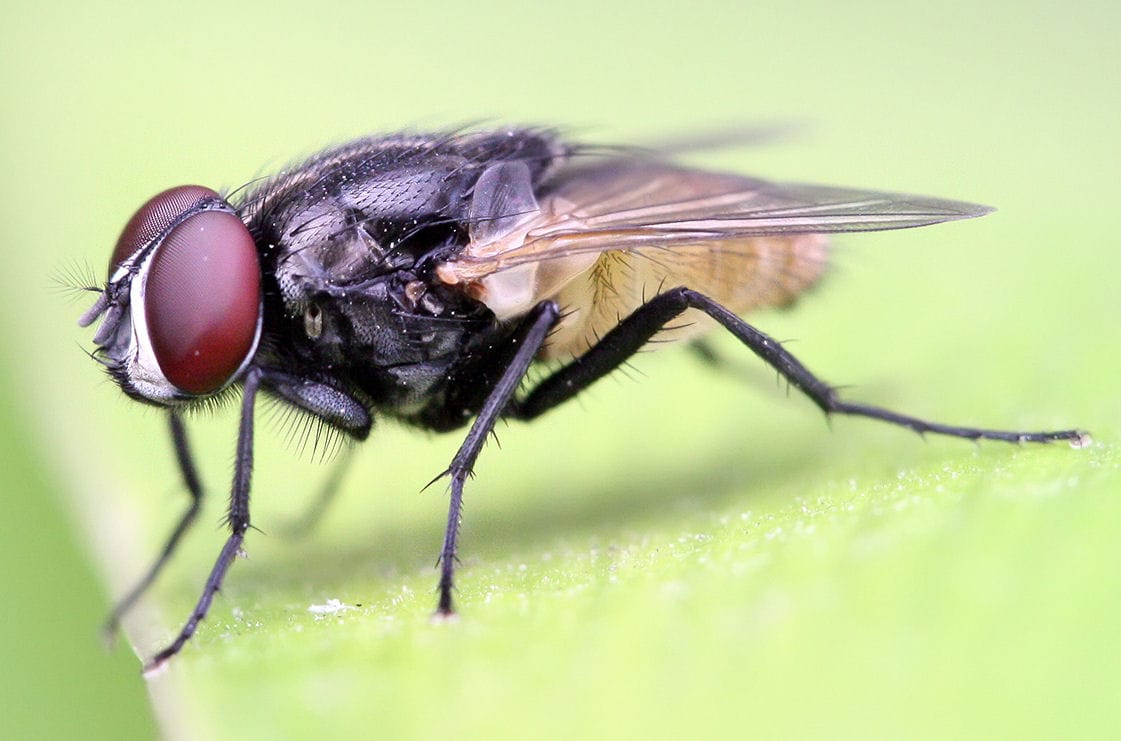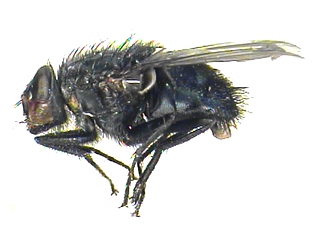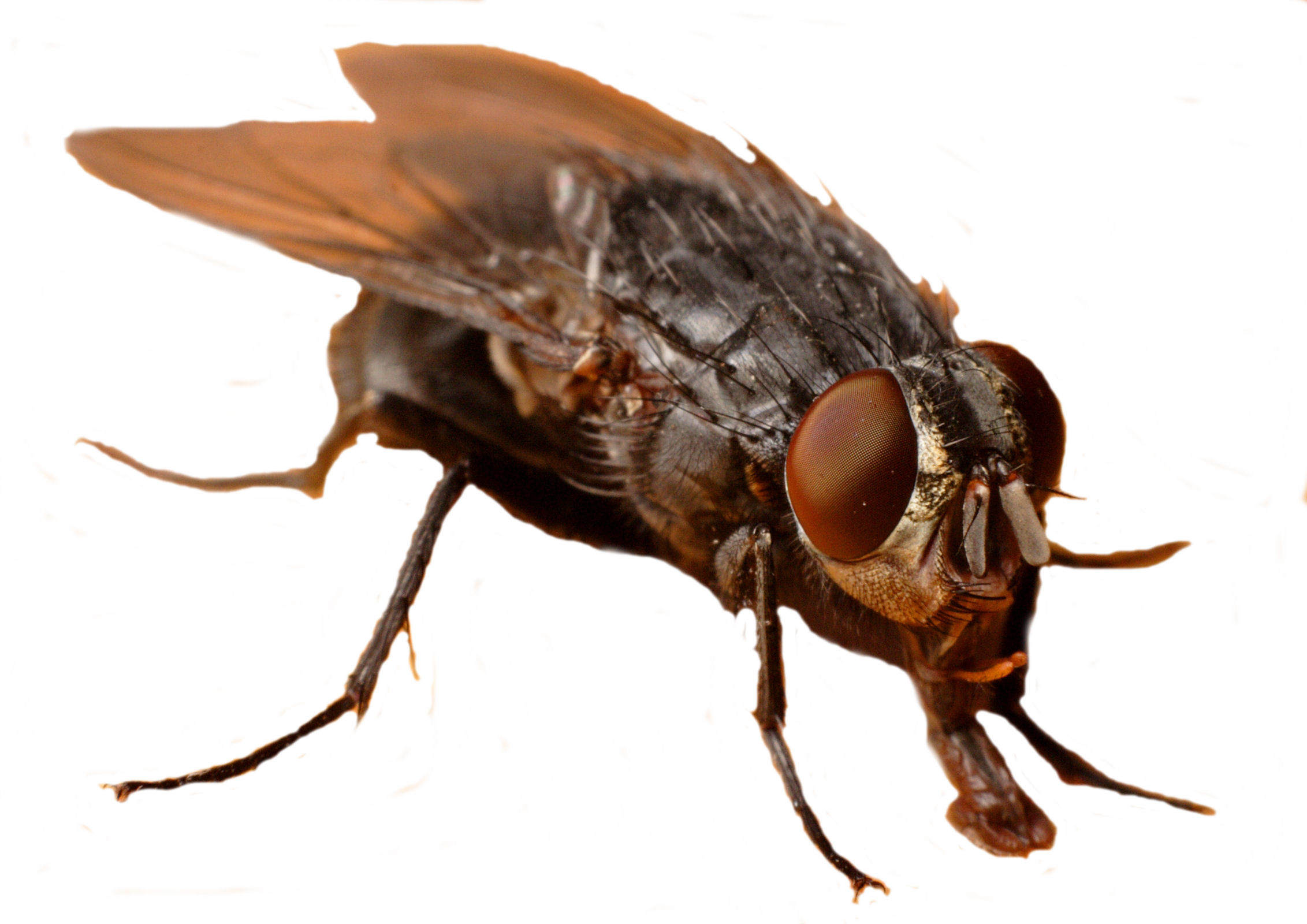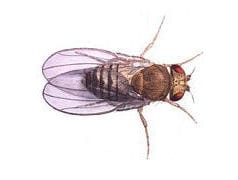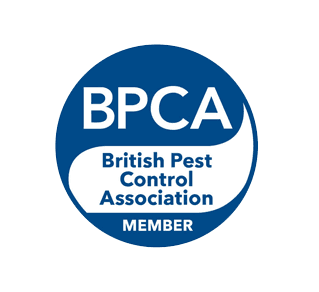Fly Pest Control Specialists
Common and Lesser House Fly
Flies which we are likely to encounter in our everyday lives are the Common or Lesser Housefly. However, apart from the biting flies, all species feed by vomiting saliva on to the food surface to liquefy the food and then treading it in and sucking up the resultant liquid. Whilst the fly is going through this process it is contaminating the food with bacteria from its gut and feet. These food poisoning organisms are then picked up by us when we eat the contaminated food or touch contaminated surface. Rotting food particularly attracts flies and decaying refuse is ideally suited for egg laying providing an instant source of food for the emergent maggots.
High protein value food such as chicken droppings and horse manure can speed up the development of the fly from this pupae stage very rapidly. Flies are also a particular problem in the food producing industries. Apart from the most obvious reasons of contamination, their faeces appears as the characteristic black spotting on products such as eggs which would then be rejected at point of sale. Other species that we are likely to come across are briefly detailed below:-
Blue Bottles or Blow Flies
Primarily feed on dead or decaying animal matter. It is their maggots, which are used and favoured by anglers. The fully-grown maggot is capable of wandering up to 100 metres in search of a suitable site in order to pupate.
Cluster Flies
As their name suggests these flies have a habit of gathering in large numbers as autumn approaches to form large clusters in order to hibernate through the winter. Favoured locations are roof spaces and voids in buildings where they would be undisturbed. These clusters can consist of many thousands of individual flies producing a rather sickly smell. If warmed up during their hibernation they may wake up and emerge in great numbers causing considerable consternation to the occupants using the building. They will often return year after year to the same property to continue this clustering phenomenon.
Fruit Flies
These are tiny flies, which have a penchant for fermenting material primarily of the fruit origin, but other species are attracted to milk and rotting vegetables. Although these flies are found in a domestic environment hovering around the fruit bowl, they are a particular problem in pickling and fruit packaging plants and cider production plants. They are often prolific in the refuse areas of commercial kitchens and some species prefer to feed on excrement prior to settling on food and food production surfaces.
Horse Flies
The females of the species have well-developed cutting and piercing mouth parts which they use with great effect to pierce the skin of warm-blooded animals such as livestock and domestic animals in order to suck their blood. However, they are quite ready to extract a similar meal from the human animal and their bite can be especially painful.
Protectahome Control
Protectahome Technicians are skilled at identifying the type and level of infestation enabling a successful treatment and control regime to be deployed. Care must be taken before any form of loft or void treatment to ensure that non target species (such as bats) are not affected or disturbed.
For more information on Pest Control by Protectahome and associated services we provide, please see our Case Studies or to speak to our Pest Control Department please Contact Us on 0800 055 6966 or alternatively email us via pestcontrol@protectahome.co.uk

